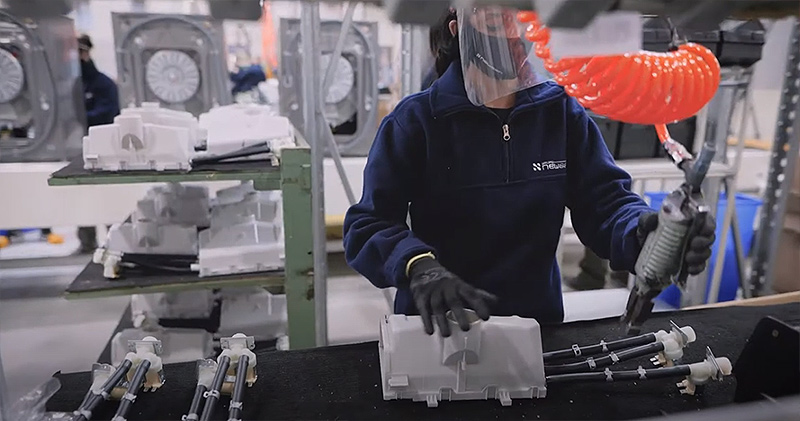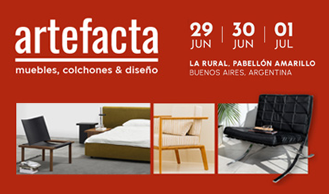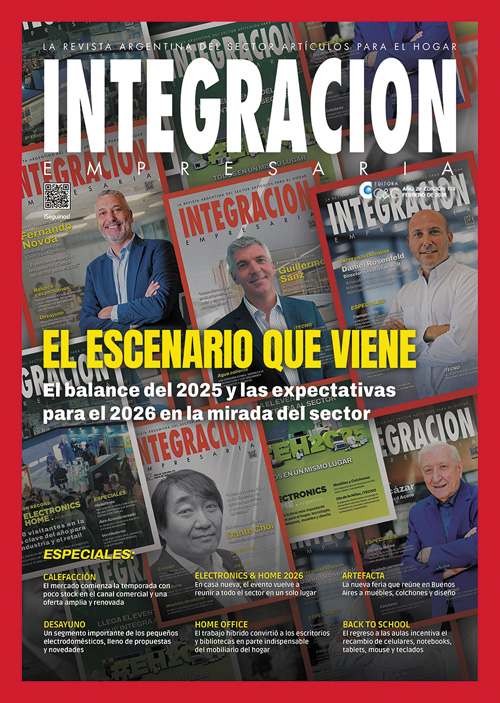Newsan's plan to manufacture the appliances that the CEPO will prevent importing
Luis Galli asks for a few more minutes to close a call. "A lot of zoom?" He is asked, when he can start the interview. “The one of all [...]

Luis Galli asks for a few more minutes to close a call. "A lot of zoom?" He is asked, when he can start the interview. "Every day. As always: two or three meetings in the center," he describes. "Alternating face -to -face. You cannot always be in virtual mode. There are officials who want one to see them; be in the plants ...", explains the Executive, CEO of Newsan, the largest producer of appliances and electronics in the country. With an annual turnover of US $ 1000 million, the group budgeted $ 10 million (more than $ 1000 million to the official change) in its investment plan this year to locate the manufacture of more than 15 categories of product that, due to exchange and foreign trade restrictions, are more expensive to import. "We try to navigate in favor of the current and not against," he defines.
-An the group of the group, the appliances and consumer electronics, what is the goal of this year?
-Our appliance plan is to continue growing and expand. We are in an online sense with what the government raises: a policy of replacing imports with local manufacturing of some products; Mainly, white line and small appliances. But we also did it with mobility items, such as electric bicycles. We have a plan to install manufacturing lines in Argentina - concluded, in the province of Buenos Aires - of much of what we imported as a final product.
-The last year, Newsan started producing frontal loading with LG. What followed or will continue?
-We have started with multiprocessors, blenders, everything that are seasonal heating products. Also, bicycles, grill ovens and horizontal freezers. There is a project to start, throughout 2021, the manufacture of more than 15 categories of products that, before, imported. This generates an entire environment, a favorable ecosystem of local suppliers, SMEs and employment. It is something that spills a lot.
-How much is that investment?
-In this first stage, we will invest US $ 10 million.
-How will be financed?
-Our strategy was always to make a mix between its own capital and the market or the financial system. It depends on the time in which the investment, the project payback and the environment of interest rates or capital cost is recovered.
-Is it a right time to search for funds in the market?
-In these days, we place our last negotiable obligation. We have permanent presence in the market. The important thing is the company's capacity and solvency. Not only with respect to new projects, but internationally. One of the most important legs are our partners: first -level global brands. The only way to achieve these alliances is to work with its international standards, which guarantee quality, product and credit support. Financial solidity is not just a policy of how to finance. Also, it is a global strategy, in order to continue being the local partner of large multinationals. That, many times, they are in doubt, about whether they stay or leave. But, through Newsan, they see that they have presence and maintenance of their brand, without assuming the risks and problems it means to operate in Argentina.
-In the last year and a half, the companies that left Argentina were news. For that expertise to be local partners, did they consult them more to assume the representation of retired brands?
-I don't see that process has been accentuated in our sector. I don't notice. But, in Newsan's story, it is normal to look for us. Sony did it when it came. Also, Huawei. Or vestas, when the wave of renovals came. In the end, we were always partners of many international brands. And that is by development, credibility, trust, plants certification, processes, products ... It is a job of many years and proof of any crisis.
-Because?
-Because, despite any crisis, one must demonstrate that he has the capacity to overcome. These agreements are very long term. Continuity and compliance are key.
-The big question is how.
-In principle, we try to navigate in favor of the current and not against. The rules of the game change; We try to adapt to the new ones. In that line, now, so that they can be on the market, we will have to go to manufacture all the categories that enter import restriction. The most important thing about Newsan is the brands, the distribution channel, their manufacturing capacity, its people and their financial capacity. We have to adapt business models based on the new rules of the game. Today, we have 15 categories in the plan. We must see what we locate, depending on the greater or lesser opening that the economy has.
-The distribution channel as a strength. Today, retail has serious problems. Without making proper names, a large chain is in financial crisis and two others had to close premises and restructure a debt that had already refinant.
-In five years, the appliance market of Argentina was considerably shrinking. There was something that happened in the last year and a half, and not in the previous ones: the retail network was consolidated, depending on that market shrinking. It was a consolidation of what happened. The loss of points of sale is associated with the fall in units that the sector had. That does not want the market not to be healthy. Those who remain are very healthy. What happened was that players left over. From 2015 to here, the market fell 40%, in units. At the beginning, that was not accompanied by an adjustment of the chains.
-More the emergence of e-commerce, by pandemic.
-Yeah. With the rise of digital sale, a new great player appeared, which is mercadolibre, and some other e-tailers. But the market is much more consolidated. Those who remain are very healthy. Many traditional are being reconvirt at high speed to the digital world and omnichannel.
-Did Newsan analyze the development of its own e-commerce?
-Our strategy is to remain manufacturers and distributors of a huge portfolio of products and large brands. And that the final consumer marketing remains through traditional customers, whether off-line or online.
-Was it difficult to resist temptation, in a context like last year?
-Our strategic position is that. Do not advance or collide with our clients. The error, sometimes, is to get into other businesses or believe that one has capacities to do everything. We incorporate a lot of capacities related to the development of an ecosystem of manufacturing, distribution, brands and new categories. Therefore, we never put points of sale or online trade. We do believe that there are people who dedicated themselves to trade and that makes it much better than us. We are very good in ours. But, not for that, we will be in the other.
-How is the domestic market?
-When one talks about the market, there is an issue that distorts statistics. Last year, the lawsuit was conditioned by the available supply. For three months, the plants were closed. That made what the sold depended a lot on what could be produced or imported. In the comparison, this year's numbers are a bit contaminated with that. It is clearly seen with cell phones: there was a very important growth but much of this year's demand was due to the shortage of product in 2020. The greatest wear of the equipment also influenced a replacement. In addition, smuggling fell and there was an additional demand: people who, before, bought it outside, on trips.
-And the rest of the categories?
-In more mature categories, such as ice cream makers, for example, I see volumes quite similar to those of last year. Except computers, where a phenomenon similar to cell phones passed. The sale depended on multinationals sent machines to Argentina. In a context of high demand for Home-Office or Home-School, it was the last country they sent.
-What expected for this semester?
-It will depend on credit. If plans like now 12 and now 18 are followed, or they are thrown (as talk) of greater deadlines (24 or 30), it can help a lot. Appliances comes from important falls. There is a recovery. It will be given continuity to that.
-How will the dollar play?
-The consumer electronics and appliances products, in general, have many components in dollars. A policy like the current one, of controlled devaluation, helps the prices of our products not have significant increases or grow below inflation or the recomposition of purchasing power. When there is a recovery of purchasing power, in terms of dollars, there is a greater propensity to consume products like ours.
-How will the elections influence?
-They will lead to how the variables behave in the pre-electoral period. As he said: a dollar delayed against inflation and purchasing power, and the continuity of official plans will favor greater consumption of appliances. For those who do not reach the house or a car, appliances also represent a value reserve, in inflation context. In addition, there was a pandemic effect: "stay at home" forced a more intensive use of our products. The money that, before, went to gastronomy, tourism, shows or events, reassigned to more purchase or participation of our offer in the family budget. He gave an additional impulse.
-How does your production plans affect the global scarcity of semiconductors?
-He were only the chips. In the last year, everything that was logistics of components and final products has been dramatic. There was a huge discontinuity or instability. An associated shortage, mainly to the explosion of demand globally. That governments around the world have put so much money in the hands of consumers caused a very large recovery. That generated an unexpected demand in our sector, which altered the supply plans of the entire value chain.
-What was the specific impact for Newsan?
-Hubo three effects. First, a very important increase in dollar values. Second, very important scarcity and discontinuity in all supply. And third, logistics costs, due to the lack of warehouses in ships or container availability. All of that affected the final costs of the products. We sign an agreement with the government, of price freezing, to mitigate them.
-Newsan is one of the main manufacturers of Tierra del Fuego. The regime expires in 2023. Virtually, tomorrow, in industrial terms. Do you worry that you do not advance with the extension?
-How before it is achieved, there will be more predictability for companies to continue making investments. We are in the world of technology: Each new cell phone, television or air conditioning model requires disbursement accompaniment. But there is another point, more important: it is believed that industrial promotion is a benefit of Tierra del Fuego companies. It is not so.
-Because?
-There are something that showed the case of computers. The import rights were taken out, with the idea that their prices would lower. And, if one looks at the story, they were the product of the appliance market that raised the most in the last three years. That shows that, with the installation of local factories, the Argentine consumer benefits, which can pay a lower price. When one does not depend on an external ecosystem, it manages its price policy in another way, not only associated with an import right to be paid. We have factories, fixed costs to amortize, payrolls…. Things that, before a leave of demand, we have to endure. Sell at loss but continue. For a Multi, on the other hand, if Argentina is wrong, it begins to send product to another country. The decision lasts two minutes.
-Why does the idea of contrary prevail?
-Some sometimes, we have not been good to explain and sell this situation. But people could see it perfectly with computers. The tariff was removed, there is a lack of devices. And they are also the ones that rose the most in prices. It is the only product of the industry that is sold directly in dollars. And it is not that one finds the last models. It ends up sending to Argentina the product B or C. The best thing that can happen to us is to see what happened with an experiment that did not work: 6400 people were left without employment, the development of an industry was lost and the State stopped raising for import rights. And, I repeat, prices went up.
-What would happen if the regime is not renewed?
-At the next day, the Brazilian products would invade us. Brazil already renewed the Manaos regime until 2073. We would be delivering the industry to a neighboring country. And, in turn, the Argentine consumer will end up paying for electronic products more expensive prices than today.
Juan Manuel Compte / Opening / The Chronicler
Latest news
Outstanding sector













